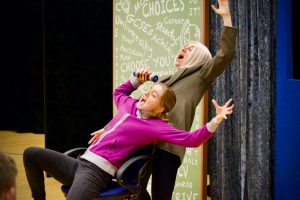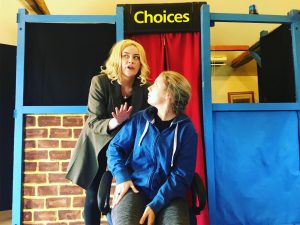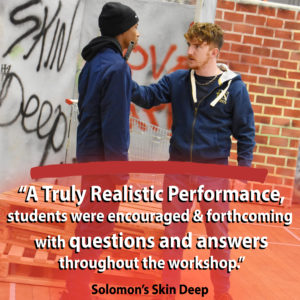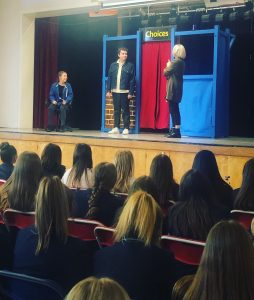Social Media keeps us connected to the world Social media can be a great tool…
What are the Benefits of Theatre in Education?
THEATRE IS IMMERSIVE
At the core, theatre immerses everyone, and we connect instantly with the drama that unfolds in front of us. It uses the 4 learning styles: visual, aural, verbal and physical. Not only does it help us develop personally in various learning styles, but it helps us to better engage with the people and the world around us. Theatre helps students to develop empathy, tolerance and social awareness, cooperation and collaboration with fellow students, communication and concentration skills.


PROVIDES STUDENTS ADVICE ON PREVALENT ISSUES IN SOCIETY
Theatre offers a personal connection and engagement for viewers and students unlike any other educational method. Drama presents itself as the most realistic form of education, this is due to the hard-hitting nature of stories that are often based on real life events. Students may see themselves directly within these stories, or see others, such as a friend or family member. Seeing stories, that they are able to resonate with, play out in front of them, students are inspired to think more deeply about the issues raised and even learn how they can help others or themselves in a similar scenario. Issues in society are all around us. Being upfront about them and shedding light on them can help students to learn and address the impact on themselves and the world around them rather than shy away from them.

HARD HITTING DRAMATIC EXAGGERATED CHARACTERS
The dramatic productional pieces with realistic and hard-hitting characters helps students to instantly recognises the good and bad qualities of personality. In regard to a Solomon production, each character is carefully crafted to allow students to personify different issues within the play. Looking at dominating to non-dominating figures, aggressive to passive aggressive characters is important in order to highlight the issues correctly. A majority of our shows include a multitude of different attitudes and characters, as we recognise every individual person has their own background and up- bringing. We have found that when these characters are presented in front of them, students often recognise elements of themselves or someone they know within them. This can be useful as it instigates a conversation for change.


WORKSHOPS TO CONTINUE THE CONVERSATION
The benefit of a workshop after a production is that students can ask questions about the issues that have just been presented to them, that they may not have otherwise asked. Students take away what they want from the production, but tend to be very inquisitive so it is beneficial for students have workshop proceeding the production as it allows them to ask the characters themselves why they have made certain decisions and get a different perspective to what causes people to behave in a certain way.. This allows students to think about their own views on the topics, and maybe even change their opinions.
A LASTING IMPACT FOR STUDENTS
The amazing thing about theatrical productions are the lasting impact they have. We believe the more we address the tricky and often taboo topics via our shows, the more we may instigate a much-needed turning point for students. Whether they view the story as being right or wrong, or whether it encourages them to seek help or offer a friend help. This is how we know that we’ve had an important impact on students in a way that they may not have even noticed themselves.


Check out our list of key issue and topical relevant shows aimed at key stage 2, 3 and 4 students
